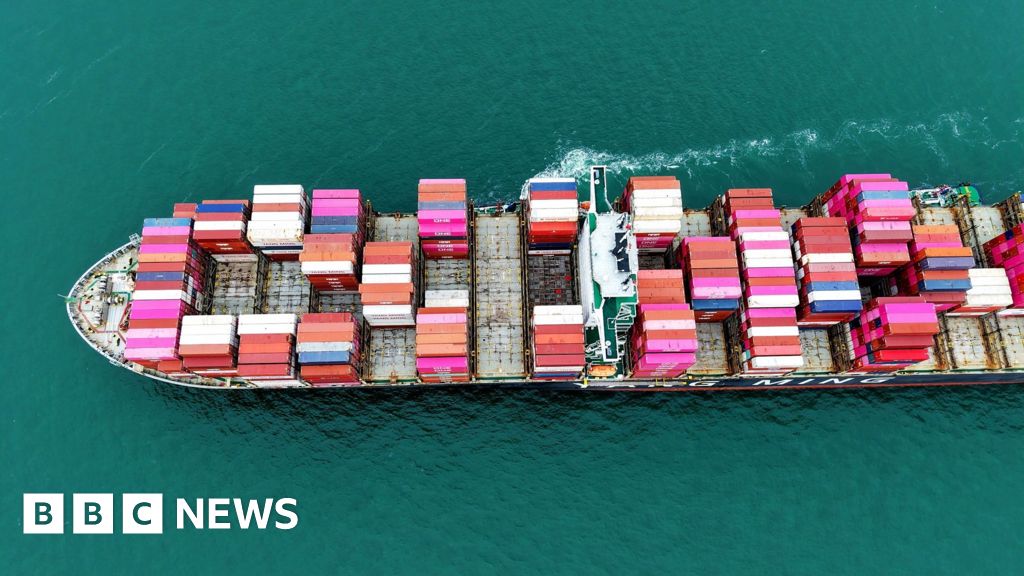**Summary of Landmark Shipping Emissions Deal Collapse**
In a dramatic turn of events, international efforts to establish the first global, industry-wide mandate for cutting greenhouse gas emissions from shipping have collapsed. The breakdown came after Saudi Arabia and the United States, backed by a small group of other countries, succeeded in halting the adoption of a deal that had been years in the making. The decision to abandon the agreement, made at a high-level meeting of the International Maritime Organization (IMO) in London, has been met with disappointment and concern from environmental advocates, industry leaders, and vulnerable nations fearing the accelerating impacts of climate change.
**Background: Years of Negotiation for a Historic Agreement**
The now-stalled agreement was the result of over a decade of negotiations among more than 100 countries. It was first tentatively approved in April, marking a milestone as the shipping sector, which currently contributes about 3% of global greenhouse gas emissions, would have become the first industry to adopt binding international targets for emissions reduction. Shipping is responsible for transporting roughly 90% of the world’s traded goods, linking its emissions closely to the global economy’s growth.
The proposed deal outlined a pathway for ship owners to shift toward cleaner fuels starting in 2028, under threat of fines for non-compliance. The intention was to break shipping’s heavy reliance on diesel—a fuel chosen for its low cost, as noted by maritime transport experts. Unlike aviation or road transport, shipping has had little incentive for change due to the lack of cheaper, cleaner alternatives. Without intervention, IMO estimates suggested shipping emissions could increase by as much as 150% by 2050.
**The Critical Meeting in London**
Delegates from over 100 countries arrived in London for what was supposed to be a final vote to approve and operationalize the emissions deal. The mood among many was one of cautious optimism—while the proposed framework was seen as lacking the ambition demanded by climate science, it was nonetheless considered a significant step forward.
However, the weeks leading up to the meeting saw mounting opposition from the United States. President Donald Trump made his administration’s position clear, branding the deal a “green scam” and warning that it would lead to higher prices for American consumers. He and his officials reportedly applied considerable diplomatic pressure, threatening tariffs against countries that supported the plan. U.S. Secretary of State Marco Rubio publicly celebrated the collapse of the negotiations, calling it a “huge win” for the Trump administration.
**Saudi Arabia’s Intervention and the Sudden Collapse**
The turning point came on the final day of the talks, when Saudi Arabia unexpectedly tabled a motion to adjourn the negotiations for a full year. The chairman of the session clarified that such a delay would effectively kill the deal, as it would force a revision of the treaty’s key timelines and undermine the years of careful planning. The motion narrowly passed, supported by a coalition that included the U.S., Russia, and Saudi Arabia.
Some EU countries, including the UK, voted against the adjournment and pushed to continue negotiations. However, the EU bloc was not unified, with Greece abstaining and some other nations wavering. China, which had originally backed the agreement in April, shifted its position to support the delay. Small island states such as the Bahamas changed their votes, while Antigua and Barbuda, initial supporters, chose to abstain.
According to sources present at the negotiations, island nations—many of which are particularly vulnerable to climate change and rising sea levels—were subjected to intense lobbying by the U.S. Many of these countries rely heavily on trade with America and faced significant pressure to alter their stance.
**Global Reaction: Disappointment and Warnings**
The collapse of the deal has been met with widespread disappointment. Ralph Regenvanu, Minister for Climate Change for Vanuatu, condemned the adjournment as “unacceptable given the urgency we face in light of accelerating climate change.” He noted that while the IMO’s Net-Zero Framework had not matched the ambition called for by climate science, it still represented meaningful progress.
Industry leaders, who had supported the deal in the hope that it would provide clear and consistent global standards, expressed frustration at the lack of resolution. Thomas Kazakos, Secretary-General of the International Chamber of Shipping, stated, “We are disappointed that member states have not been able to agree a way forward at this meeting. Industry needs clarity to be able to make the investments.”
The Secretary General of the IMO, Arsenio

